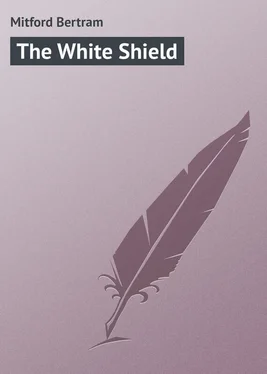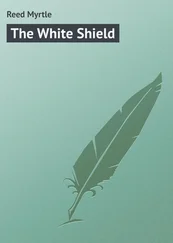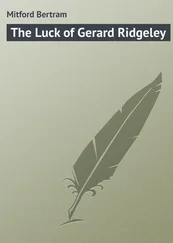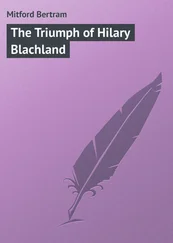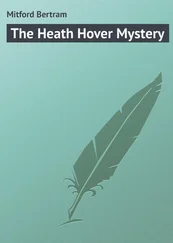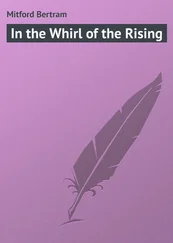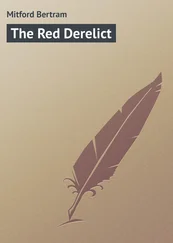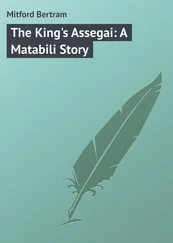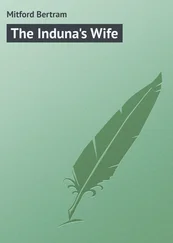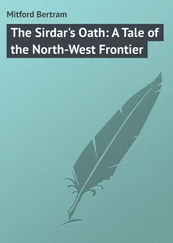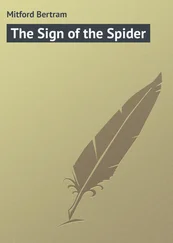Bertram Mitford - The White Shield
Здесь есть возможность читать онлайн «Bertram Mitford - The White Shield» — ознакомительный отрывок электронной книги совершенно бесплатно, а после прочтения отрывка купить полную версию. В некоторых случаях можно слушать аудио, скачать через торрент в формате fb2 и присутствует краткое содержание. Жанр: foreign_prose, на английском языке. Описание произведения, (предисловие) а так же отзывы посетителей доступны на портале библиотеки ЛибКат.
- Название:The White Shield
- Автор:
- Жанр:
- Год:неизвестен
- ISBN:нет данных
- Рейтинг книги:4 / 5. Голосов: 1
-
Избранное:Добавить в избранное
- Отзывы:
-
Ваша оценка:
- 80
- 1
- 2
- 3
- 4
- 5
The White Shield: краткое содержание, описание и аннотация
Предлагаем к чтению аннотацию, описание, краткое содержание или предисловие (зависит от того, что написал сам автор книги «The White Shield»). Если вы не нашли необходимую информацию о книге — напишите в комментариях, мы постараемся отыскать её.
The White Shield — читать онлайн ознакомительный отрывок
Ниже представлен текст книги, разбитый по страницам. Система сохранения места последней прочитанной страницы, позволяет с удобством читать онлайн бесплатно книгу «The White Shield», без необходимости каждый раз заново искать на чём Вы остановились. Поставьте закладку, и сможете в любой момент перейти на страницу, на которой закончили чтение.
Интервал:
Закладка:
“Who are ye, stranger people, who enter the land of the Bakoni? Who are ye? so few, yet singing songs of war?”
Our warriors shook their heads and growled like dogs. They understood not this language, but I understood it moderately well, having been at pains to learn from old Masuka both the tongues and customs of the people around, with all of which he was well-acquainted; and, indeed, it was because of my knowledge of these tongues that the King had sent me in command of such a small impi , which might easily have been led by a chief of far inferior rank.
“Of the Bakoni? Who is your chief, and where is he?” I cried in return.
“Ascend hither, strangers, then you may see and speak with him,” came the reply.
Not a shade of hesitation did our warriors show as I made known this request. They advanced up the hill, marching in rank and singing, as proudly disdainful of the vastly overwhelming numbers in front as though safe at Ekupumuleni. Even the women and boys, staggering under their loads of meat, dared not leave us, although their own people were around them in force and we were but few.
We soon gained the brow of the rise, and spreading out on either hand in two long lines, their spears glittering in the sinking sun, we beheld the battle rank of the Bakoni warriors. But we beheld something more. Beyond the rise whereon we stood, beyond the small river which flowed at its base on the further side, was a wide rolling plain covered with cattle, and beyond the cattle lay the countless huts of an immense town.
Our eyes opened wide, and a deep-throated gasp escaped us. What a place to burn! What countless herds to sweep away! was the thought in each man’s mind.
Behind this town rose a great hill, steep-sided, flat-topped, and belted by lines of cliffs. There were further hills beyond it, but this one stood out from all, seeming to stand by itself upon the plain. We almost forgot the near presence of a great number of enemies. These, however, now closed in around us.
“Draw near, strangers,” said the man who had first hailed us, and who seemed to be a leader of some kind – “the Chief of the People of the Blue Cattle sits before you.”
I beheld, seated upon a leopard skin, a man just past middle age. He was a well-built man, tall and sinewy, and more martial-looking than any of his people. He was seated alone, a few councillors attending him several paces in the background, and save for a battle-axe, no arms were near him. He wore ornaments of gold, as we noticed did quite a number of the people, and the axe itself was profusely inlaid with gold.
“This people,” I thought, “if not warlike, is skilful in making weapons. Good. It shall make weapons for its masters, the conquerors of the world.”
“Greeting, Chief of the Blue Cattle,” I said, taking up the title by which he had been named; and, indeed, looking upon the countless herds which were scattered over the plain, I noticed that the greater number were of a bluish-white colour.
He frowned, thinking I accosted him with scant deference, which was true, for we Amazulu, People of the Heavens, do not bend low before the chiefs of such tribes as this.
“Why do you approach me with weapons in your hand, stranger? Is this a custom among yourselves when approaching a chief?”
“Our weapons were placed in our hands by the Great Great One – the Black Elephant, whose voice trumpets afar. Not until we return into his presence again do we lay them down,” I answered shortly.
All this while I was keenly watching the chief’s face, and I read therein a bragging nature, but a coward spirit underlying it. He, for his part, was noting our large stature and fearless bearing, our great shields and heavy-bladed spears, and I knew he was impressed thereby.
“What do you here, in my country, strangers?” he continued, frowning still deeper. “You enter it armed and slaughter our cattle, and seize upon our women and boys to act as your slaves,” with a glance at the group behind us who had thrown off their loads to rest. “This must be explained.”
“The explanation is short, O Chief of the Blue Cattle,” I answered haughtily, standing straight and with my head thrown back. “We entered this, your country, as we would enter any country, at the bidding of the Great Great One, who sits at Ekupumuleni, the Black Elephant, who is King over the whole world and King over the Bakoni of course. This is the explanation, O Chief of the Blue Cattle.”
At these words an enraged murmur arose from those immediately before us, and rolled along the ranks in a defiant shout. Still, with my head thrown back, I only laughed slightly.
“That is my explanation; now hear my advice,” I went on. “Send back immediately your highest indunas with a large present of girls and cattle to the Great Great One who sits at Ekupumuleni. Then will he fix the terms upon which he will suffer you and your people to live, O Chief of the Blue Cattle.”
To the first shout of rage now succeeded a deafening yell of exasperation as the people caught the gist of these proud words. There was a swift rush and the ranks tightened around us. Spears were shaken towards us, and eyes glared with angry menace. But my little band made scarcely a movement; a hand here and there would shift nearer to the head of the deadly stabbing assegai, or a shield would quiver in sinewy grip. That was all, yet upon every face there glowed the light of battle. A moment and we should be hewing our way through those broad ranks to the inspiration of our fiercely maddening war-cry.
But the chief’s command availed to arrest the rush of his exasperated fighting men, which was well for him; else had he fallen that moment – for I had marked him as first victim, nor could he have escaped me.
“What is thy name, leader of this band of strangers?” he said.
“Untúswa, son of Ntelani, of the tribe of Umtetwa, of the nation of Zulu, is my name. Ponder it well, O Chief of the Blue Cattle, for in truth thou shalt hear it again.”
Once more, a loud and angry shout arose from the warriors. Once more the words of the chief stayed the tumult.
“Look around, Untúswa, son of Ntelani,” he said, rising for the first time. “Yonder is our town – one of many. Behind it rises a hill, which is flat on the top, whereon grows abundant grass, and springs flow. It could carry the cattle of a nation and the fighting men of a nation, and the force who would climb it might just as well think to climb the Heavens themselves, for it is fortified from base to summit. Behold these,” designating the armed warriors; “these are but a handful among the fighting-men who obey my word. Yet I would quarrel with none, wherefore I will not suffer that violence should overtake you – even though you have offered insult to a mighty nation in the person of its chief. Depart now, ye strangers, in peace, while ye may. Farewell!”
“How is it called, this great and mighty town, my father?” I said, somewhat mockingly.
“It is called ‘The Queen of the World,’” he answered proudly.
“Ha! That is good,” I replied. “When the tread of the Elephant – Umzilikazi, the Great Great One, the Founder of Nations – shaketh yonder town, then the King and the Queen of the World will be mated? Till then, farewell, O Chief of the Blue Cattle!”
Then we departed even as we had come – slaves and all – no man hindering us. Yes, the name of Zulu was mighty indeed in those days.
Chapter Two.
Treason in the Air
Strong as we felt in the might of our name and nation, we were too well skilled in the game of war to allow ourselves to be lulled into a blind security. Day after day, night after night, we kept a sharp look-out, expecting the forces of the Bakoni and their allies to fall upon us in overwhelming numbers. But they did not; which went to show that something of the terror of our name had travelled to the Chief of the Blue Cattle; nor, indeed, did I doubt but that messengers would follow shortly after us with gifts, and desiring to konza to Umzilikazi, even as had done all other nations within our reach.
Читать дальшеИнтервал:
Закладка:
Похожие книги на «The White Shield»
Представляем Вашему вниманию похожие книги на «The White Shield» списком для выбора. Мы отобрали схожую по названию и смыслу литературу в надежде предоставить читателям больше вариантов отыскать новые, интересные, ещё непрочитанные произведения.
Обсуждение, отзывы о книге «The White Shield» и просто собственные мнения читателей. Оставьте ваши комментарии, напишите, что Вы думаете о произведении, его смысле или главных героях. Укажите что конкретно понравилось, а что нет, и почему Вы так считаете.
